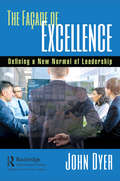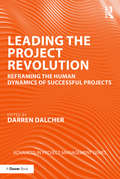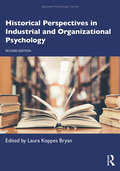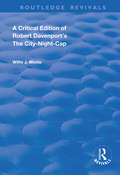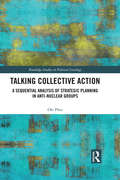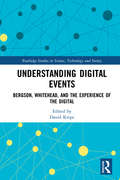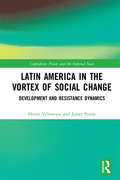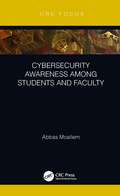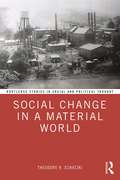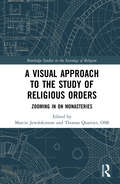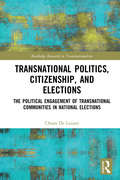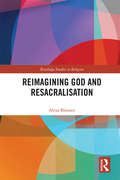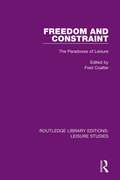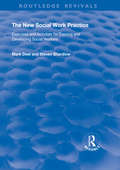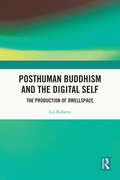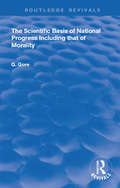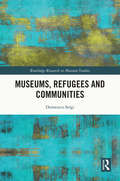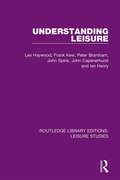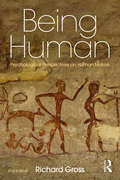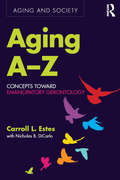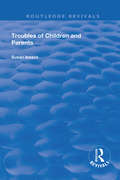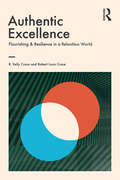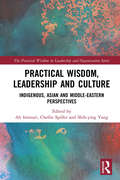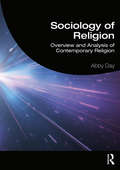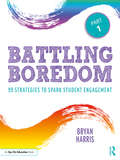- Table View
- List View
The Façade of Excellence: Defining a New Normal of Leadership
by John DyerThe crucial need to substitute true leadership for bad management practices such as Management By Objectives (MBO) and the use of fear is now well known and was often championed by Dr. W. Edwards Deming. While significant progress has been made, many organizations (especially outside of manufacturing) are either just getting started with their improvement efforts or they are faking their way forward (going through the motions), trying to imitate what they have read in books or have seen at conferences. The executives of these organizations might give permission for the tools of Lean and Six Sigma to be taught but many of them still refuse to look in a mirror and change their own leadership style. They have built a "façade of excellence" that crumbles quickly whenever a bit of chaos is introduced. Not being able to sustain improvements over the long term is one of the top complaints from improvement professionals. What ingredient is missing that prohibits changes to occur throughout the leadership ranks that might create a culture that embraces teamwork, collaboration and improvement? To start, what exactly do we mean by leadership? The common mistake is to try and put all effective leaders into the same box. Leadership actually has many dimensions and several definitions. This book explores four different styles of leadership that includes "The Crisis Leader," "The Idea Gathering Leader," "The Team Forming Leader," and "The Empowerment Leader."Each of the four styles is appropriate when given a certain set of circumstances (an organization in trouble needs a "Crisis Leader" for example). The goal is to shift the organization, including the leaders and all of the employees at every level, toward collaboration and empowerment. Why go through the pains to rebuild an organization’s culture and leaders? In the annual "IndustryWeek Magazine - Best Plants" competition, the companies that have made the transition to high performance, fully empowered teams ("The Empowerment Leader"), in general, demonstrate far better results than all other applicants (and they tend to win "Best Place to Work" awards as well).So, what is keeping organizational leaders, especially those in the middle of the organization chart, from adopting the "The Empowerment" leadership style? This book defines and helps the reader understand what this new normal of leadership consists of and: Explains the four different styles of leaders and how these are different than a typical "old style" manager. Indicates which style is appropriate given a certain set of circumstances and how a leader knows when it is time to migrate from one style to another. Illustrates what it means for an organization to shift from a "dictator" culture to one of collaboration and what steps can be taken to help this transformation. Explores the current definition of a "promotable manager" and how this differs from a new normal definition of an outstanding, effective "Empowerment" leader. Defines Mission, Vision, Strategy, and Values and how these four cultural principles fit into the leadership progression model. Shows how the culture within the organization will be different after the adoption of empowered teams and introduces the concept of "Enthusiastic Productivity."
Leading the Project Revolution: Reframing the Human Dynamics of Successful Projects (Advances in Project Management)
by Darren DalcherPeople play a vital part in the success of projects, initiatives and organisations, yet traditional project management sources offer limited guidance and insights that extend beyond technical roles and prescriptions. Leading the Project Revolution delves into the dynamics of people, teams and organisations exploring their impact on leadership, strategy, success and achievement. <P><P>The book offers a progressive agenda for improving project practice, enabling the dialogue to advance from the typical coverage of static toolsets towards an understanding of flexible mindsets. Flexibility, agility and resilience are addressed as the social, cultural and complexity dimensions of leadership, strategy, organisations and project execution are examined and practical insights are synthesised into pragmatic models and frameworks. <P><P>The volume brings together some of the best writing by leading authorities on teams, leadership, corporate culture, human behaviour, organisational dynamics, psychology, complexity, strategy, execution, innovation, social media and decision sourcing.
Historical Perspectives in Industrial and Organizational Psychology (Applied Psychology Series)
by Laura Koppes BryanHistorical Perspectives in Industrial and Organizational Psychology, Second Edition updates the first edition with the latest creative and scholarly views of I-O psychology to provide a complete, up-to-date understanding of this discipline’s history within a contemporary context. This new edition includes updated chapters from the first edition as well as three completely new chapters: a history of LGBTQ+ employees’ workplace experiences, the evolution of worker well-being and work-life issues, and a reflection on the importance of context when studying workplaces and whether or not the science and practice of I-O psychology is prepared for the future. Historical Perspectives in Industrial and Organizational Psychology, Second Edition compiles chapters written from the historical perspectives of I-O psychologists, historians, and other experts in their fields, all of whom use historical analyses as the method of inquiry rather than provide summarized overviews of the topics. Chapter authors rely on archival materials, primary and secondary sources, as well as interviews with luminaries and experts. Historical Perspectives in Industrial and Organizational Psychology, Second Edition is essential reading for contemporary and aspiring scholars of I-O psychology and related fields, such as history of psychology, human resource management, organizational behavior, and public administration. Both scientists and practitioners will benefit from reading this text.
A Critical Edition of Robert Davenport's The City Night-Cap (Routledge Revivals)
by Robert DavenportOriginally published in 1979, this volume includes the full, edited, 1661 play of Robert Davenport, 'The City Night-Cap', alongside textual notes, including an introduction on the man and his works, theatrical history, characterization, theme and structure, and setting.
Talking Collective Action: A Sequential Analysis of Strategic Planning in Anti-Nuclear Groups (Routledge Studies in Political Sociology)
by Ole PützAn ethnographic study of anti-nuclear movement groups that both challenges assumptions of traditional social movement studies of strategic action and shows what can be gained through microanalysis of talk in meetings, this book advances social movement studies methodologically and theoretically through the application of a new method of sequential analysis. Drawing on both conversation analysis and objective hermeneutics, it builds on microanalysis to scale up from sequences of talk to meetings, from meetings to groups, and from groups to the anti-nuclear movement, thus addressing a common criticism of analyses of face-to-face interactions: that they fail to demonstrate how their findings are relevant for questions beyond the interaction itself and thus for a broader sociological audience. A demonstration of the ways in which strategic deliberations by activists are subject to dynamics of face-to-face interaction, Talking Collective Action shows how groups adopt different styles of planning to engage with their environment and affect the groups’ development over time. As such, it will appeal to social scientists with interests in social movements, organizations and conversation analysis.
Understanding Digital Events: Bergson, Whitehead, and the Experience of the Digital (Routledge Studies in Science, Technology and Society)
by David KrepsThis book introduces an events-based approach to understanding digital experience. Focusing on the event-ontologies of Bergson and Whitehead’s process metaphysics, it explores subjective experience and objective reality as unified ‘events’ in the form of concrete slabs of existence. Such slabs are temporally defined by a term or period, in which all physical-chemical processes and personal subjective experience are included. Bringing together insights from a range of different specialisms, it urges us to consider a science of nature that includes both physical and non-physical realities and, from this ontological position, draws on philosophy, media, and user experience practice to provide a new account of the technological or virtual world of today. An examination of the manner in which process philosophy may be applied to contemporary digital experience, this volume will appeal to scholars of philosophy, science and technology studies and information systems.
Latin America in the Vortex of Social Change: Development and Resistance Dynamics (Capitalism, Power and the Imperial State)
by Henry Veltmeyer James PetrasThis book explores the dynamics of the recent ‘progressive cycle’ in Latin American politics, associated with a red and pink tide of regime change. With this cycle of centre-left regimes oriented towards an alternative post-neoliberal form of development now coming to an end, coinciding with the end of a ‘primary commodities boom’ (the demand for natural resources exported in primary form on the world market), the authors seek to explore the dynamics of the transition from a progressive cycle of regimes oriented towards the search for a more inclusive form of development towards what appears to be another swing in the pendulum of electoral politics towards the far right and a return to neoliberal orthodoxy. Within the vortex of forces of change pushing towards both the Left and the Right, Latin America lies at the centre of ongoing heated theoretical and political debates as to how to bring about a more inclusive and sustainable form of post-neoliberal and post-capitalist development. Latin America in the Vortex of Social Change crucially aims to cut through these debates and explore the dynamics of the forces of change at work in the current conjuncture of capitalist development. With reference to a theoretical framework based on the interaction of three different forms of capitalism (capitalism as usual, extractive capitalism, narco-capitalism), the authors proceed to an analysis of the development and resistance dynamics of the development process that is unfolding on the Latin American political landscape. The book will appeal to scholars of political sociology and political theory with an interest in the political economy of development and Latin American affairs.
Cybersecurity Awareness Among Students and Faculty
by Abbas MoallemIn modern times, all individuals need to be knowledgeable about cybersecurity. They must have practical skills and abilities to protect themselves in cyberspace. What is the level of awareness among college students and faculty, who represent the most technologically active portion of the population in any society? According to the Federal Trade Commission’s 2016 Consumer Sentinel Network report, 19 percent of identity theft complaints came from people under the age of 29. About 74,400 young adults fell victim to identity theft in 2016. This book reports the results of several studies that investigate student and faculty awareness and attitudes toward cybersecurity and the resulting risks. It proposes a plan of action that can help 26,000 higher education institutions worldwide with over 207 million college students, create security policies and educational programs that improve security awareness and protection. Features Offers an understanding of the state of privacy awareness Includes the state of identity theft awareness Covers mobile phone protection Discusses ransomware protection Discloses a plan of action to improve security awareness
Social Change in a Material World: How Activity and Material Processes Dynamize Practices (Routledge Studies in Social and Political Thought)
by Theodore R. SchatzkiSocial Change in a Material World offers a new, practice theoretical account of social change and its explanation. Extending the author’s earlier account of social life, and drawing on general ideas about events, processes, and change, the book conceptualizes social changes as configurations of significant differences in bundles of practices and material arrangements. Illustrated with examples from the history of bourbon distillation and the formation and evolution of digitally-mediated associations in contemporary life, the book argues that chains of activity combine with material events and processes to cause social changes. The book thereby stresses the significance of the material dimension of society for the constitution, determination, and explanation of social phenomena, as well as the types of space needed to understand them. The book also challenges the explanatory significance of such key phenomena as power, dependence, relations, mechanisms, and individual behavior. As such, it will appeal to sociologists, geographers, organization studies scholars, and others interested in social life and social change.
A Visual Approach to the Study of Religious Orders: Zooming in on Monasteries (Routledge Studies in the Sociology of Religion)
by Marcin Jewdokimow Osb Thomas QuartierA Visual Approach to the Study of Religious Orders applies visual methods to the exploration of various facets of religious life, such as everyday lived experience, contemporary monastic identity or monastic architecture. Presenting a series of visual essays, it treats images not as simple illustrations but as an autonomous form of expression, capable of unveiling vital and developmental layers of experience, while inviting readers to examine and interpret the data themselves. The first book of its kind, it brings together case studies from various locations across Europe to demonstrate what the use of visual methodologies can contribute to social scientific research on religious orders. As such, it will appeal to scholars and students of sociology, religious studies and theology and anyone with interests in religious orders.
Transnational Politics, Citizenship and Elections: The Political Engagement of Transnational Communities in National Elections (Routledge Research in Transnationalism)
by Chiara De LazzariThis book examines the reasons for which political parties engage with transnational communities and consider the engagement of expatriate communities to be of value or, otherwise, for domestic politics. Centred on Italy, and offering comparative analyses of external voting policies in other countries, such as Turkey and Romania, it draws on interview material with representatives of major political parties and members of state institutions to consider why parties value the political engagement of citizens living abroad. With attention to citizenship policies and the motivations that guide policy makers to introduce external voting policies in countries of origin, the author raises questions about the legitimacy of political engagement on the part of diasporic communities and asks how we should best understand the implementation of certain types of domestic citizenship policy. As such, Transnational Politics, Citizenship, and Elections will appeal to scholars of sociology and politics with interests in transnationalism and the engagement of expatriate populations in the domestic politics of their countries of origin.
Reimagining God and Resacralisation (Routledge Studies in Religion)
by Alexa BlonnerThis book shows that widespread resacralisation has been taking place, which is producing new ways of perceiving God and the divine. The last century has seen unmistakable changes in religious practices and the concept of spirituality right across the world. There was a broad expectation for much of the twentieth century that religious worldviews would eventually succumb to the challenge of secularist materialism, but this process of secularisation has yet to occur as predicted. The book begins by contrasting theories of secularisation and resacralisation. Throughout the book, conceptual threads, or ‘new religious themes’, related to this resacralisation are discussed in terms of three main categories: reimagining God’s nature, substance and location; reimagining human value and purpose; and reimagining modes of redemption. Finally, the book considers how these threads are moving in various different directions, and what the religious future might hold. This is a bold examination of contemporary spirituality that will appeal to academics and scholars of religious studies, new religious movements and the sociology of religion.
Freedom and Constraint: The Paradoxes of Leisure (Routledge Library Editions: Leisure Studies)
by Fred CoalterFirst published in 1989. In the climate of long-term unemployment, early retirement, and technology that is seen to threaten jobs, 'leisure’ has been presented as the solution to a multitude of social problems. The essays in this collection represent the most important arguments on the problems, myths, and misunderstandings of leisure. Arguing from a range of positions, some sceptical, others more idealistic, they look at the complexities of this field and the social and political problems that surround it. No single argument dominates. What emerges is a live-wire debate on class and gender, employment and economic status, age and education, which brings the discussion of leisure controversially up to date. The book, based on papers presented to conferences of the Leisure Studies Association, divides into sections on leisure and social change, the relationship between leisure and social structures, and the tension between leisure and employment. It takes a critical look at leisure in Britain, Sweden, the Netherlands, and the USA, and at the paradoxes that will determine its future. Whilst refusing to see leisure as a synonym for social progress and liberalization, it argues that the quality of leisure reflects the quality of society itself.
The New Social Work Practice: Exercises and Activities for Training and Developing Social Workers (Routledge Revivals)
by Mark Doel Steven ShardlowFirst published in 1998, this book is a fully revised and updated edition of Social Work Practice, first published in 1993 as a training manual. The New Social Work Practice presents a comprehensive view of contemporary social work. Whether it be general or specialist practice, care and control or power and oppression, these central issues and recurring themes are given a topical treatment. Changes in core aspects of social work are fully explored in lively and realistic ways, combining the essence of good practice with current organizational demands. The aim of the original workbook remains intact: to guide and stimulate learning about social work practice. The book achieves this purpose by presenting various aspects of social work using different settings and contexts. New and revised activities are included to promote discussion, understanding, learning and better practice. Taken toether, the topics and themes in the book define the essential elements of a curriculum for social work practice.
Posthuman Buddhism and the Digital Self: The Production of Dwellspace
by Les RobertsIn Posthuman Buddhism and the Digital Self, Les Roberts extends his earlier work on spatial anthropology to consider questions of time, spaciousness and the phenomenology of self. Across the book’s four main chapters – which range from David Bowie’s long-standing interest in Buddhism, to street photography of 1980s Liverpool, to the ambient soundscapes of Derek Jarman’s Blue, or to the slow, contemplative cinema of Tsai Ming-Liang – Roberts lays the groundwork for the concept of ‘dwellspace’ as a means by which to unpick the shifting spatial, temporal and experiential modalities of everyday mediascapes. Understood as a particular disposition towards time, Roberts’s foray into dwellspace proceeds from a Pascalian reflection on the self/non-self in which being content in an empty room vies with the demands of having content in an empty room. Taking the idea of posthuman Buddhism as a heuristic lens, Roberts sets in motion a number of interrelated lines of enquiry that prompt renewed focus on questions of boredom, distraction and reverie and cast into sharper relief the psychosocial and creative affordances of ambience, spaciousness and slowness. The book argues that the colonisation of ‘empty time’ by 24/7 digital capitalism has gone hand-in-hand with the growth of the corporate mindfulness industry, and with it, the co-option, commodification and digitisation of dwellspace. Posthuman Buddhism is thus in part an exploration of the dialectics of dwellspace that orbits around a creative self-praxis rooted in the negation and dissolution of the self, one of the foundational cornerstones of Buddhist theory and practice.
The Scientific Basis of National Progress (Routledge Revivals)
by G. GorePublished in 1970: The leading idea of the book is that present knowledge only enables us to maintain our present state, that national progress is the result of new ideas, and that the chief source of new ideas is original research. That as advance has its origin in new knowledge; unless new discoveries are made, new inventions and improvements must sooner or later cease. Another prominent idea is, that truth is essentially the same in all divisions of knowledge, and that the mental powers and processes employed in detecting it are the same in all subjects.
Museums, Refugees and Communities (Routledge Research in Museum Studies)
by Domenico SergiMuseums, Refugees and Communities explores the ways in which museums in Germany, The Netherlands and the UK have responded to the complexities and ethical dilemmas involved in discussing the reasons for, and issues surrounding, contemporary refugee displacements. Building upon an ethnographic study carried out in the UK with refugees from the Democratic Republic of Congo, the book explores how object-led approaches can inspire new ways of thinking about and analysing refugees’ experiences and European museums’ work with their communities. Enlarging the developing body of research on museums’ increasing engagement with human rights and focusing in particular on the social, cultural and practical dimensions of community engagement practices with refugees, the book also aims to inform growing debates on museums as sites of activism. Museums, Refugees and Communities offers an innovative and interdisciplinary examination of museum work with and about refugees. As such, it should appeal to researchers, academics and students engaged in the study of museums, heritage, migration, ethics, community engagement, culture, sociology and anthropology.
Understanding Leisure (Routledge Library Editions: Leisure Studies)
by Peter Bramham John Spink Ian Henry Frank Kew Les Haywood John CapenerhurstFirst published in 1989. Understanding Leisure is a readable introductory analysis of the key elements in the study of leisure. This includes leisure concepts and dimensions of leisure, its activity forms, participants, provision, and leisure futures, leisure and social theory. A collaborative work of six authors, Understanding Leisure is a textbook which introduces the reader to the interrelated dimensions of leisure in contemporary society and aims to provide them with guidelines for further study. Exercises and discussion topics are included at the end of each chapter to enable the reader to apply general theory to particular examples. The text contains seven chapters covering all aspects of the study of leisure. Starting with a critical evaluation of different concepts of leisure it progresses through an analysis of the relationship between leisure both to play and work and the diverse forms of leisure such as recreation, hobbies, crafts and education. There then follows a perspective on leisure participation, an analysis of the spatial dimensions of leisure and how relative land values can affect access to leisure. The historical context of leisure provision and the changing relationship between public and private sector is then examined which provides insights into the future of leisure, based on forecasts and theories of social change. The book ends with a discussion of how contemporary social theory contributes to an understanding of leisure. Understanding Leisure will be valuable reading for undergraduate degree courses in Leisure Studies. It will also be useful background reading for post graduate study in Leisure and Recreational Management and Tourism as well as for leisure professionals in both the commercial and public sectors.
Being Human: Psychological Perspectives on Human Nature
by Richard GrossWhile there may be no one single characteristic that differentiates humans as a species, it is the combination of differences from other species that makes us unique. The new edition of Being Human examines the psychology of being human through exploring different psychological traditions alongside philosophy and evolutionary theory, covering themes such as culture, cognition, language, morality, and society. Our nature – or ‘essence’ – is something that has preoccupied human beings throughout our history, beginning with philosophy and religion, and continuing through the biological, social, and psychological sciences. Being Human begins by describing some of the major philosophical accounts of human nature, from Ancient Greek philosophers, such as Plato and Aristotle, to major British and Continental philosophers, such as Locke and Nietzsche. The book considers religious accounts of human nature, with their focus on the nature of good and evil, and scientific accounts of genetics and the brain, which underpin the distinctively human cognitive ability of language. Attention then turns to the ideas of the behaviourists, such as Skinner, Freud, and other psychodynamic psychologists, and humanistic-phenomenological psychologists, such as Maslow. Finally, human culture is discussed as the ultimate defining characteristic of human beings: culture represents our ‘natural habitat’ and what defines us as a species. This updated second edition includes increased coverage of social psychology and has a broader scope, in order to identify the defining characteristics of human beings. With reference to current psychological research and philosophical material, this is fascinating reading for students of psychology, philosophy, and the social sciences.
Aging A-Z: Concepts Toward Emancipatory Gerontology (Aging and Society)
by Carroll L. Estes Nicholas B. DiCarloThis provocative, intellectually charged treatise serves as a concise introduction to emancipatory gerontology, examining multiple dimensions of persistent and hotly debated topics around aging, the life course, the roles of power, politics and partisanship, culture, economics, and communications. Critical perspectives are presented as definitions for reader understanding, with links to concepts of identity, knowledge construction, social networks, social movements, and inequalities. With today’s intensifying concentration of wealth and corporatization, precarity is the fate for growing numbers of the world’s population. Intersectionality as an analytic concept offers a new appreciation of how social advantage and disadvantage accumulate, and how constructions of race, ethnicity, class, ability, and gender influence aging. The book’s entries offer a bibliographic compendium, crediting the salience of early pioneering theorists and locating these within the cutting-edge of research (social, behavioral, policy, and gene–environment sciences) that currently advances our understandings of human development, trauma, and resilience. Accompanying these foundations are theories of resistance for advancing human rights and the dignity of marginalized populations.
Troubles of Children and Parents (Routledge Revivals)
by Susan IsaacsPublished in 1948: Parents have many problems. Those dealt with in this are mainly the social and emotional difficulties arising in the development of children in their early years. The material is selected from a much larger bulk of actual letters from parents and nurses which the author answered under the pseudonym of "Ursula Wise" in The Nursery World (published by Benn Bros.) during the years 1929-36.
Authentic Excellence: Flourishing & Resilience in a Relentless World (Giving Voice to Values)
by R. Kelly Crace Robert Louis CraceNever before have the pressures of a comparative and competitive world impacted on our sense of wellbeing, particularly among young adults. Building on the principles of Giving Voice to Values, which honors the complexity and difficulty of leading with our values, this book addresses the unique challenges faced by young adults. It provides a clear process that details how to harness natural wisdom to flourish through the relentless pace and pressure of today’s world. Moving beyond mere values clarification, Authentic Excellence helps the reader to develop a deeper relationship with their values and confidently express them, and builds effective coping skills to manage the relentless noise of our comparative and competitive world. Authentic Excellence answers five primary questions: How are young adults affected by this world of relentless change and pressure? Why are young adults vulnerable to a plateau that can negatively affect their resilience? What is the difference between fear-based excellence and authentic excellence and what role do values play in this distinction? What is necessary to move beyond fear-based excellence and why is it so hard? How do you train a deeper level of effectiveness that includes more consistent productivity, fulfillment and resilience?
Practical Wisdom, Leadership and Culture: Indigenous, Asian and Middle-Eastern Perspectives (The Practical Wisdom in Leadership and Organization Series)
by Ali IntezariDespite the growing attention towards the importance of practical wisdom in business today, little research has been done about the concept of practical wisdom in the Indigenous, Asian and Middle-Eastern traditions. Contemporary studies of wisdom are dominated by the philosophical traditions of Western thought, which is based on the ancient Greek concepts of wisdom. Much less is known about how practical wisdom, as illuminated by these other traditions, can be implemented in today’s organizational settings. This book thus fills an important gap in understanding wisdom and how it is applied in a poly-cultural world. Wisdom is culturally bound. Wisdom is poly-cultural and interweaves individuality and communality. Practical wisdom is inextricably connected to many needs of contemporary personal and professional life. Moreover, the increasingly growing poly-culturality around the world requires a better understanding of how practical wisdom is understood in different cultures and traditions. Accordingly, there is a need for a) poly-cultural understanding of the concept of wisdom and b) the role of practical wisdom in a world crying out for wisdom. This book underlines the importance of developing a poly-cultural and interdisciplinary understanding of the concept of practical wisdom in today’s complex environment. The book offers significant insight into the implications of the non-Western traditions of wisdom and how such an understanding of the non-Western traditions can help us better and more critically understand and appropriately address new multi-faceted complex emerging phenomena. While the Western traditions offer valuable insight into the implication of wisdom in modern life, an integrated view that brings together the Western and non-Western traditions can provide a more critical and practical insight into how to apply practical wisdom in a contemporary poly-cultural environment.
Sociology of Religion: Overview and Analysis of Contemporary Religion (Theology And Religion In Interdisciplinary Perspective Series In Association With The Bsa Sociology Of Religion Study Group Ser.)
by Abby DayThe first sociology of religion textbook to begin the task of diversifying and decolonizing the study of religion, Sociology of Religion develops a sociological frame that draws together the personal, political and public, showing how religion – its origins, development and changes – is understood as a social institution, influenced by and influencing wider social structures. Organized along sociological structures and themes, the book works with examples from a variety of religious traditions and regions rather than focusing in depth on a selection, and foregrounds cultural practice-based understandings of religion. It is therefore a book about ‘religion’, not ‘religions’, that explores the relationship of religion with gender and sexuality, crime and violence, generations, politics and media, ‘race’, ethnicity and social class, disease and disability – highlighting the position of religion in social justice and equality. Each chapter of this book is framed around concrete case studies from a variety of Western and non-Western religious traditions. Students will benefit from thinking about the discipline across a range of geographical and religious contexts. The book includes features designed to engage and inspire students: Up-to-date and comprehensive analysis of engaging and accessible material ‘Case Examples’: short summaries of empirical examples relating to the chapter themes Visually distinct boxes with bullet points, key words and phrases focusing on the context Questions suitable for private or seminar study Suggested class exercises for instructors to use Suggested readings and further readings/online resources at the end of each chapter Following a review and critique of early sociology of religion, the book engages with more contemporary issues, such as dissolving the secular/sacred binary and paying close attention to issues of epistemology, negotiations, marginalities, feminisms, identities, power, nuances, globalization, (post) (multiple) modernity (ies), emotion, structuration, reflexivity, intersectionality and urbanization. This book is essential reading for undergraduate and postgraduate students exploring the sociology of religion, religion and society, religious studies, theology, globalization and human geography.
Battling Boredom, Part 1: 99 Strategies to Spark Student Engagement
by Bryan HarrisDrive boredom out of your classroom – and keep it out – with the student-engagement strategies in this book. You’ll learn how to gain and sustain the attention of your students from the moment the bell rings. Perfect for teachers of all subjects and grade levels, these ready-to-use activities go head-to-head with student boredom and disengagement, resulting in class time that’s more efficient, more educational, and loads more fun! Contents include: Strategies to Begin a Lesson Strategies to End a Lesson Strategies for Solo/Independent Work Strategies for the Whole Group Strategies for Engaging Reluctant Learners Bonus: The book also features a Quick Guide to Parent Engagement, with loads of suggestions for increasing student engagement by partnering with families. Companion Book Available! For more strategies, don’t miss the companion book Battling Boredom, Part 2. Bryan Harris teams up with technology integration expert and former teacher Lisa Bradshaw to provide additional activities on academic talk, feedback to boost student performance, meaningful writing and reflection prompts, movement-based activities, effective classroom technology integration, and more!
